Meet The Professors
A Sociopolitical Educational Talk Show
Host: Professor Deana Pollard Sacks
Season 2
Episode 4: Sex Torts 2
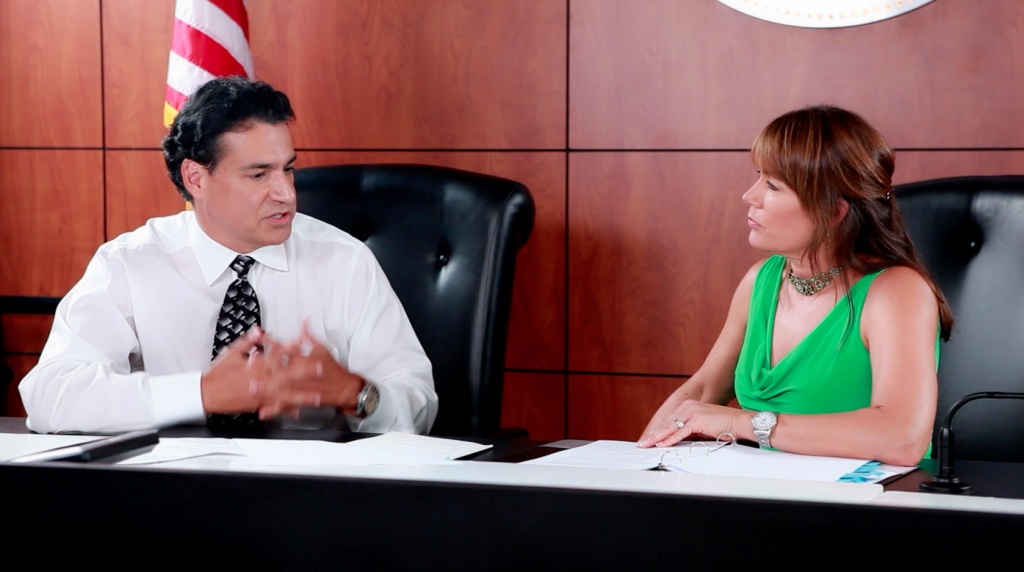
In Season 2, Episode 4 of Meet The Professors, Deana Pollard Sacks and Fred Galves focus on the sex torts cases that have come down in the past couple of decades. Some cases are grounded in sexual disease transmission, and some are grounded in harm caused by sexual partners that does not necessarily include disease, but can include violating another’s personal discretion in choosing sex partners, such as by lying to obtain consent for sex. There are also cases of “husband stealing.” Note that liability in the case concerning the celebrity who transmitted HIV to a sex partner was not based purely on the celebrity’s promiscuous lifestyle. The court allowed the celebrity’s promiscuity to be considered, but the court also found that the celebrity’s knowledge of his disease, symptoms, or a prior sex partner being infected with HIV was critical to make a finding that the celebrity had the type of knowledge or intent that would render civil liability appropriate.
Episode 3: Sex Torts 1
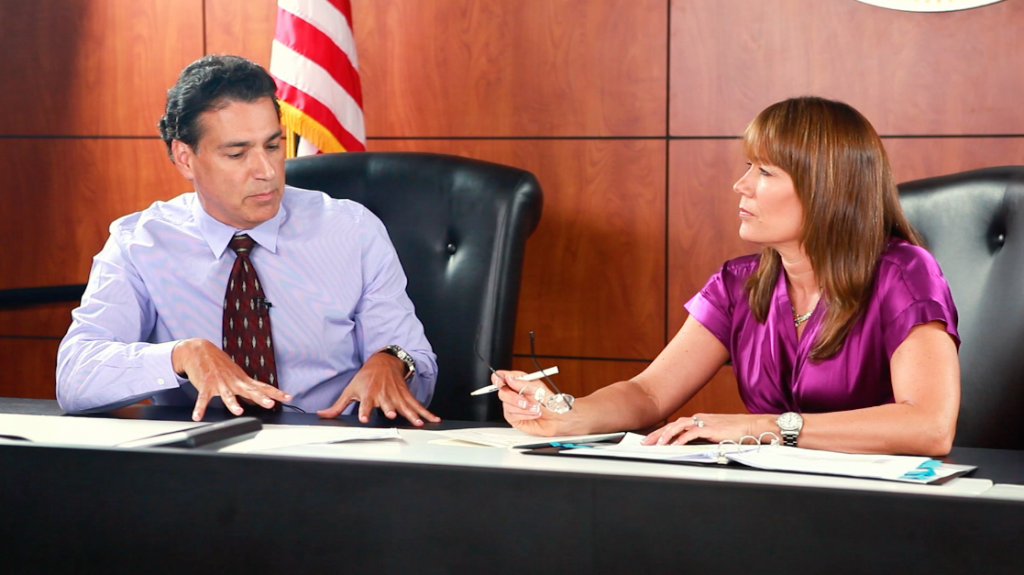
In Season 2, Episode 3 of Meet The Professors, Fred Galves and Deana Pollard Sacks discuss the history of sex regulation in the United States, the explosion of sexual disease in the United States in the past 30 years, the reasons for the sexual disease explosion, and the current law on liability for transmitting a sexual disease to another person. Note that the research on the sexual disease statistics and “core transmitters” continues to evolve. Prior research suggests that the 3% of Americans who are core transmitters are responsible for up to 100% of sexual disease transmission because most people who become infected do not pass their infections on to others. However, this research has been questioned as young people in particular have more sexual partners than in the past. Still, core transmitters are responsible for the vast majority of new sexual infections and are the most likely persons to be sued when a sex tort lawsuit is filed.
Episode 2: Proposition 13
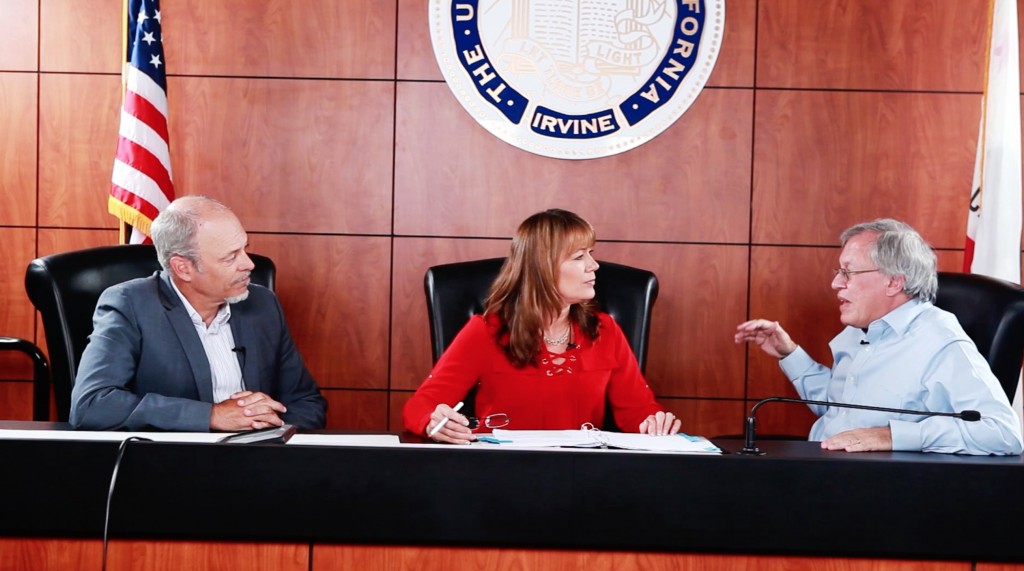
In Season 2, Episode 2 of Meet The Professors, Deana Pollard Sacks discusses California’s Proposition 13 with Erwin Chemerinsky, Dean of Boalt Hall School of Law (U.C. Berkeley, as of July 1, 2017) and Clark Stevens, Adjunct Professor, Architect and Executive Officer of the Resource Conservation District of the Santa Monica Mountains. Prop. 13 amended the California Constitution in 1978 and limits property taxes both as to residential property and commercial property. Sacks and Chemerinsky take the position that Prop. 13 is anti-competitive, favors wealthy landowners over the less wealthy and newcomers similar to a caste system, and has had a devastating effect on schools due to the loss of property taxes for school funding. Stevens takes the position that Prop. 13 has created stability in the real estate market by assuring property buyers that they will not lose their property due to large tax increases, and has had other positive effects.
Episode 1: The Case Against the Supreme Court
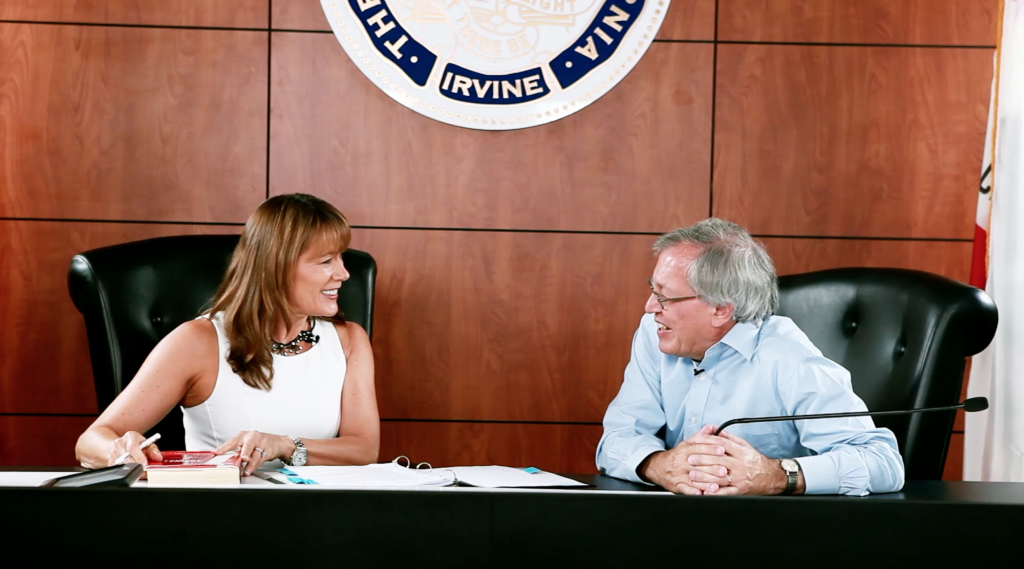
Season 1
Episode 1: Sex on Television and its Effects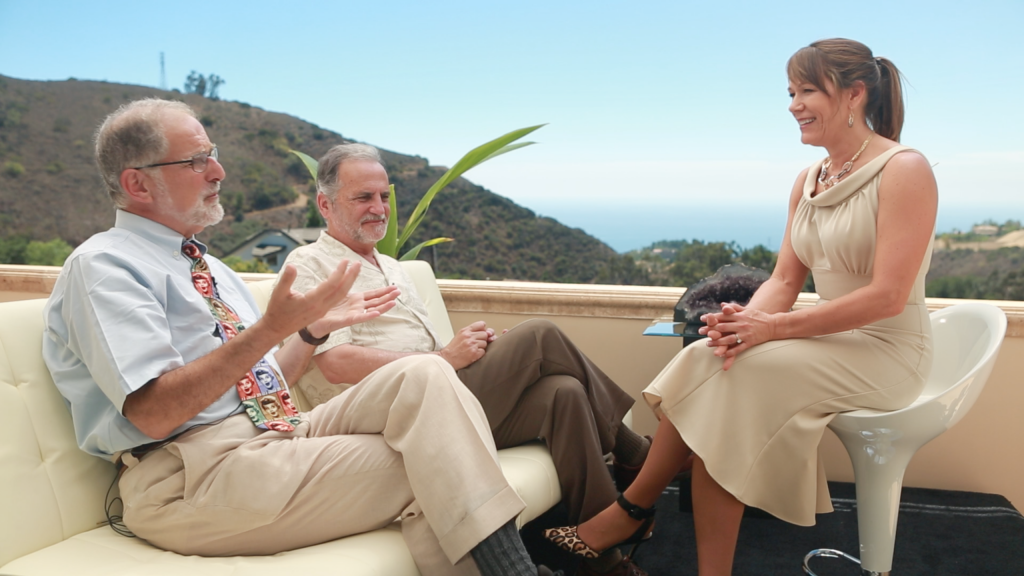 Victor Strasburger and Ed Donnerstein with host Deana Pollard Sacks
Victor Strasburger and Ed Donnerstein with host Deana Pollard Sacks
In Episode 1 of Meet The Professors, guests Professor Victor Strasburger (Distinguished Professor of Pediatrics, University of New Mexico School of Medicine) and Dean Emeritus Ed Donnerstein (University of Arizona Department of Communications) explain how television, movies, the internet, and other media influence children’s and adults’ sexual identity, sexual scripts, norms, and overall culture and behavior. The professors discuss the level of sexual innuendo in American television and other media, sexy media’s influence on body image and sexual beliefs, and the social problems of teenage pregnancy, sexual disease, and low self-esteem.
Episode 2: Bullying, Harassment, and the Courts
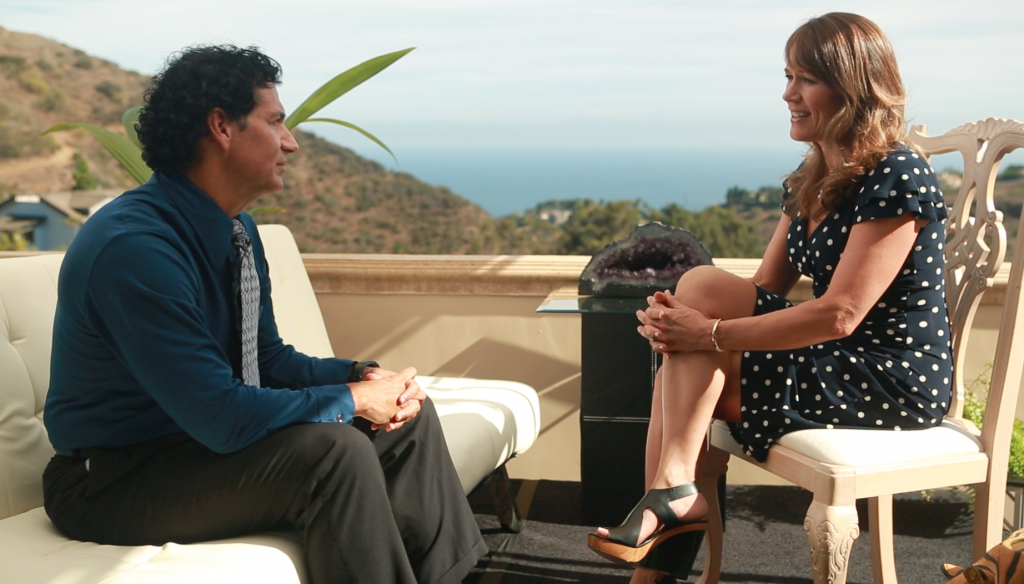 Fred Galves and host Deana Pollard Sacks
Fred Galves and host Deana Pollard Sacks
In Episode 2 of Meet The Professors, Fred Galves (Professor of Law, Pacific McGeorge School of Law) and host Deana Pollard Sacks (Roberson King Professor of Law, Texas Southern University) discuss the growing problems of bullying and harassment in our society and how the courts have handled cases arising from bullying, harassment, and other hate-based misconduct. The professors discuss Snyder v. Phelps and the United States Supreme Court’s jurisprudence when civil remedies for harmful speech collide with the First Amendment’s broad protection of even the most biased, hateful, and harassing speech.
Episode 3: Mass Media’s Influence on Your Mind
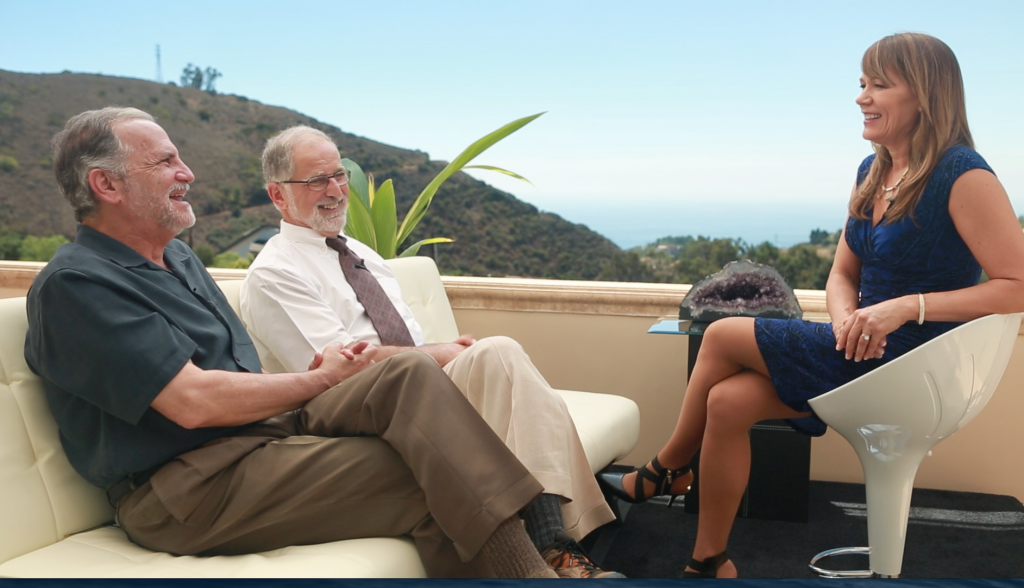
Ed Donnerstein, Victor Strasburger, and host Deana Pollard Sacks
In Episode 3 of Meet The Professors, Dean Emeritus Ed Donnerstein (University of Arizona Department of Communications), Victor Strasburger (Distinguished Professor of Pediatrics, University of New Mexico School of Medicine) and Deana Pollard Sacks (Roberson King Professor of Law, Texas Southern University) discuss how the human brain inputs, stores, and processes information, and why the media is so powerfully influential in how we think and what we believe. The professors discuss how people learn scripts from watching television and other media, why children are much more influenced by media than adults, and how parents can protect their children from the negative influences of mass media.
Episode 4: Violent Video Games’ Effects On Children
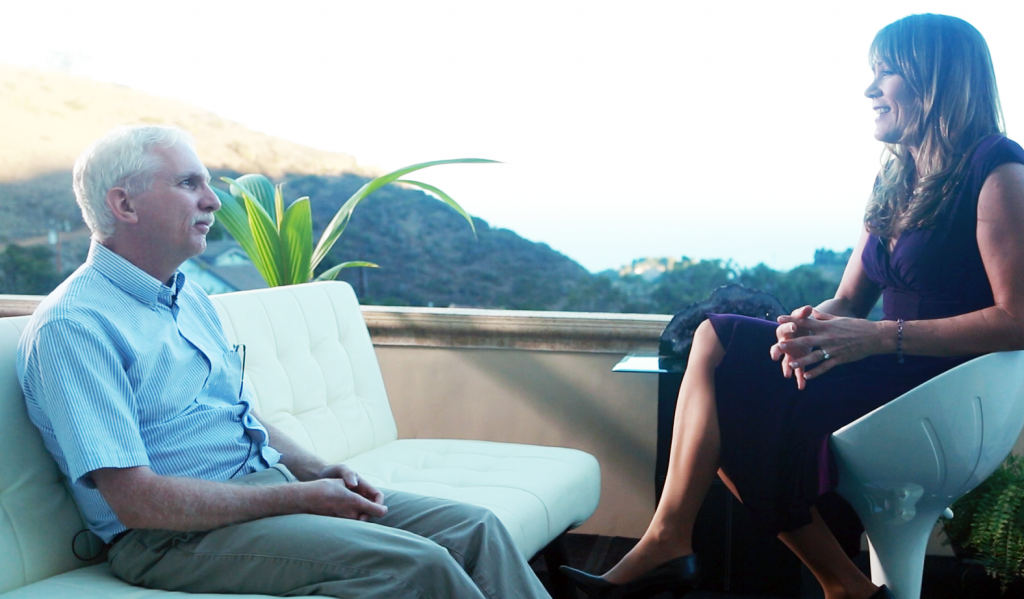 Craig Anderson and host Deana Pollard Sacks
Craig Anderson and host Deana Pollard Sacks
In Episode 4 of Meet The Professors, Craig Anderson (Distinguished Professor of Psychology and Director of the Center for the Study of Violence, Iowa State University), Brad Bushman (Professor of Communication and Psychology, The Ohio State University), and Deana Pollard Sacks (Roberson King Professor of Law, Texas Southern University) discuss the dozens of studies showing that children and adolescents who spend a significant amount of time playing violent video games become more aggressive in their thoughts and actions. The relatively new brain scan studies show that brain chemistry is altered when video games are played for long period of time, and permanent brain re-wiring can result, with attendant negative effects such as conduct disorder, aggression, “mean world syndrome,” and depression.
Episode 5: Racism in America and Implicit Bias
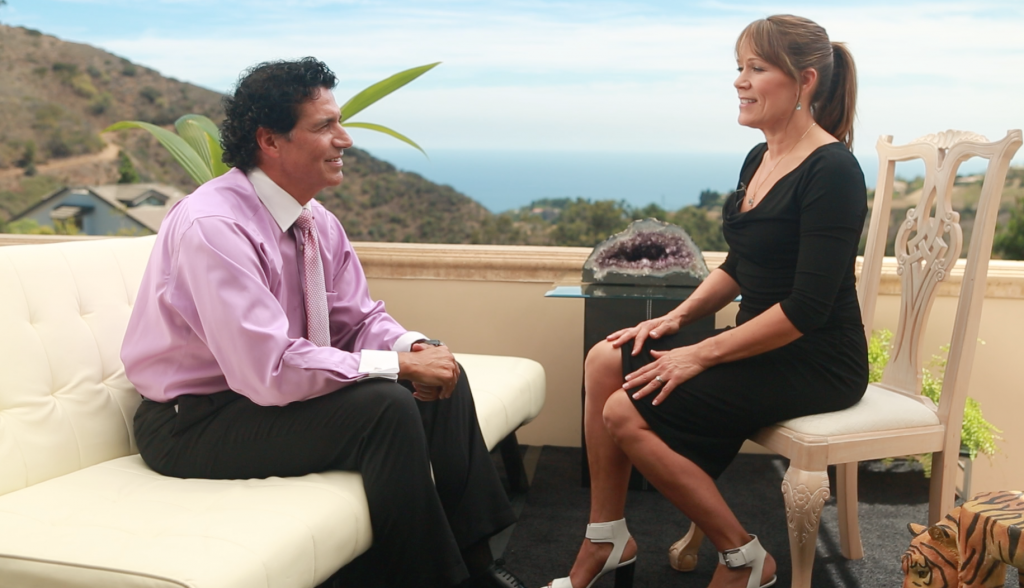
Fred Galves and host Deana Pollard Sacks
In Episode 5 of Meet The Professors, Fred Galves (Professor of Law, Pacific McGeorge School of Law) and host Deana Pollard Sacks (Roberson King Professor of Law, Texas Southern University) discuss the research on racism and unconscious bias, and how bias plays out relative to perceptions, judgments, and actions. Numerous personal anecdotes help reveal how unconscious bias manifests in daily life, even among educated professionals.
Episode 6: The Politics of Mass Media
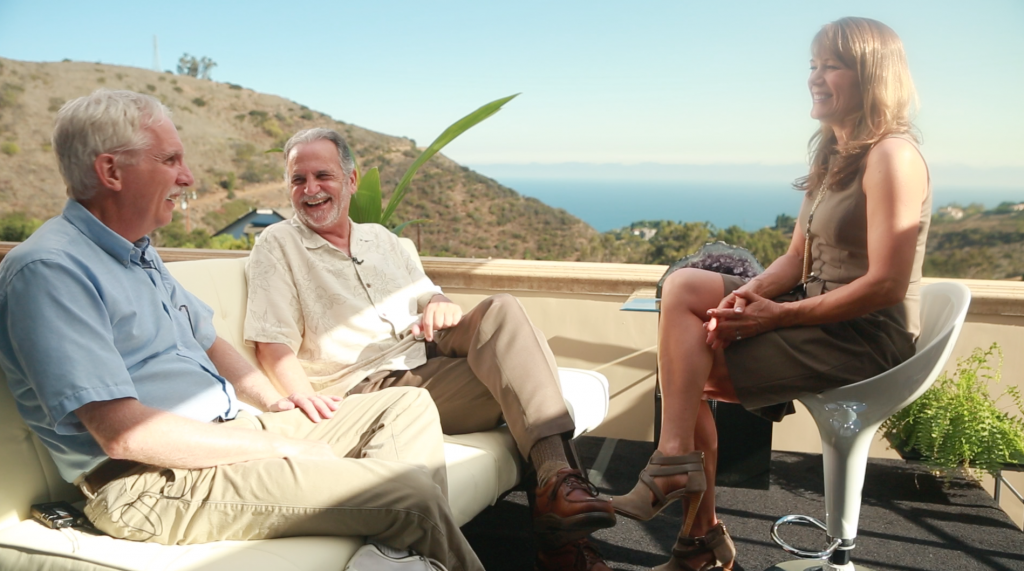
Craig Anderson, Ed Donnerstein, and host Deana Pollard Sacks
In Episode 6 of Meet The Professors, Craig Anderson (Distinguished Professor of Psychology and Director of the Center for the Study of Violence, Iowa State University), Dean Emeritus Ed Donnerstein (University of Arizona Department of Communications), and host Deana Pollard Sacks (Roberson King Professor of Law, Texas Southern University), discuss the politics behind the way in which research on the effects of media are presented to the public. The professors discuss the politics behind the failure of the government and the news media to report the research accurately.
Episode 7: Regulating Violent Video Games
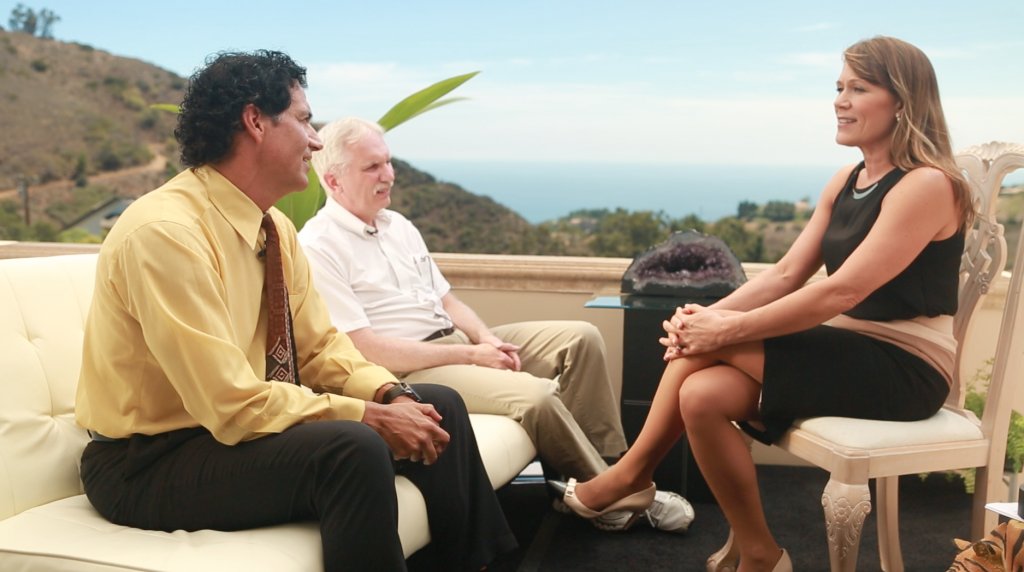
Fred Galves, Craig Anderson, and host Deana Pollard Sacks
In Episode 7 of Meet The Professors, Craig Anderson (Distinguished Professor of Psychology and Director of the Center for the Study of Violence, Iowa State University), Professor Fred Galves, and host Deana Pollard Sacks (Roberson King Professor of Law, Texas Southern University), discuss various legislative attempts to regulate the sale of violent video games to minors, and the courts’ opinions striking down all such sales regulations on First Amendment grounds. The professors compare United Supreme Court cases concerning regulation of speech, point out stark inconsistencies among the cases, and posit political reasons for the inconsistencies.
